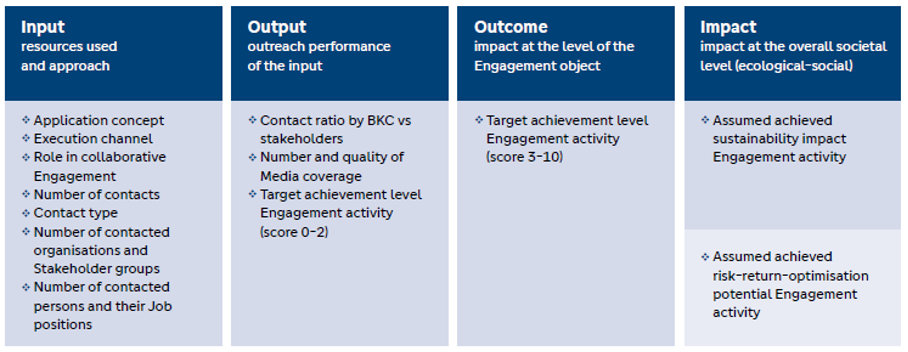Q&A with Tommy Piemonte, Head of Sustainable Investment Research at Bank für Kirche und Caritas (BKC), a Catholic church Bank based in Paderborn, Germany
| You recently released your results report: Catholic Investor Engagement with Brazil to protect the Amazon rainforest and the indigenous population. Could you give us a brief overview of the content of this report and to whom it is addressed?
This report is aimed at a wide range of stakeholders in the field of sustainable finance as well as stakeholders with an interest in the protection of the Amazon rainforest and the indigenous population, clients and cooperative members of Bank für Kirche und Caritas (BKC) as well as all stakeholders with an interest in engagement and sustainability impact.
On the one hand, this report documents in detail the world‘s first Catholic investor engagement of this magnitude for the protection of the Amazon rainforest and the indigenous and traditional population living there. On the other hand, it describes how engagement with countries can be carried out effectively and the model developed by BKC to measure the sustainability impact of engagement activities.
You can find the result report and more information on the Catholic Investor Engagement with Brazil on BKC’s website.
| Impact measurement of engagement? What is behind it and what is your motivation for publishing it?
Engagement is considered by many to be one of the most impactful instruments in ethical-sustainable investment to promote sustainable development goals and minimise negative sustainability impacts in the “real world“.
We think that Engagement has the potential to bring about social-ecological transformation. But at the same time, the financial community and the public are looking with increasing vigilance and a critical mindset at those who practice engagement. Therefore, the question arises as to what the characteristics of credible engagement are and what impact individual engagement activities have for a socio-ecological transformation in practice.
As recommended in point 8 of the “Key points for credible engagement” published by BKC, Union Investment and Shareholders for Change in September, BKC would like to use the presented model of impact measurement to stimulate an expert discussion on its further development.
In this regard, point 8 of the Key points says: “Engagement activities should be made as measurable as possible in terms of their sustainability impact. Although measuring the impact of engagement activities is a challenge, everyone who practice engagement should help to establish evaluation and measurement procedures for the sustainability impact of engagement.”
But the big question is, how can the sustainability impact of engagement activities be measured?
With the evaluation model presented in the report, BKC has created a way for itself to measure the impact of its engagement activities and uses the example of the Brazil engagement presented to show how it can be applied. With this type of impact measurement of engagement activities BKC is breaking new ground, especially in relation to countries. Based on a literature review and expert interviews, we have designed a model for measuring the impact orientation of engagement activities that is based on the IOOI impact logic (IOOI = Input – Output – Outcome – Impact) established in impact measurement.
Have you already read?
〉How to do engagement: alone, together and everywhere | Bank für Kirche und Caritas
| That sounds very interesting, please give us a deeper insight into your impact measurement model?
Of course, I cannot explain the entire model in detail in a short interview, as it would go beyond the limits, but I will try to outline a few important key points.
We have translated the four dimensions of the IOOI impact logic to engagement activities in our model as follows:
〉Input – The resources used and the approach taken in the engagement activity.
〉Output – The performance arising from the input in terms of who is reached and with what reaction.
〉Outcome – The actions or impacts resulting from the input and output at the level of the engagement object with regard to the target achievement level of the engagement demands.
〉Impact – The overall societal (ecological-social) effects resulting from the outcome with regard to the sustainability impact and the risk-return-optimisation potential.
The core element and challenge in applying the IOOI impact logic to engagement is that meaningful indicators and evaluation criteria for an engagement activity need to be identified and translated into the IOOI impact logic. BKC has focused on analysing, on the basis of its published engagement guideline, which indicators and evaluation criteria provide a meaningful picture of the approach and enable measurement of the engagement activities carried out by BKC. As a result, BKC applies the following indicators and evaluation criteria:
While measuring and evaluating the input and the output of engagement activities is relatively easy, measuring and evaluating the outcome, and especially the impact, is much more difficult. Measuring impact at the overall societal (ecological-social) level is generally associated with various difficulties and usually only possible after a longer period of time. In order to be able to counter the imponderables described, BKC uses an evaluation model consisting of three steps that build on each other:
Step 1 – Preparation phase:
Appropriate engagement objects and engagement activities are selected on the basis of factors to be examined in advance of an engagement. Thereby, the focus is on two questions that need to be answered:
〉What sustainability impact is attributed to the sustainability topic and the engagement object?
〉What risk-return-optimisation potential does the sustainability topic and the engagement object offer in the portfolio context of BKC?
Both when defining the objective of the engagement activity and when defining the engagement object, the assumed sustainability impact as well as the assumed risk-return-optimisation potential are each assessed with a score, according to a scale defined by BKC.
Step 2 – Execution phase:
The target achievement level of the engagement activity is measured by a score, according to a scale defined by BKC, which is used to assess how the engagement object has achieved the goal required of it within an engagement activity respectively to what extent it has implemented the entirety of the engagement demands.
Step 3 – Follow-up phase:
The assumed impact provoked by the engagement activity can be calculated in the designed model on the basis of steps 1 and 2 and includes two areas. One area is expressed as ”Assumed achieved sustainability impact Engagement activity“ with a total score between score 0 ”non-existent“ to score 10 ”very high“. The calculation of the score works as follows:
Sustainability impact topic score x Sustainability impact engagement object score x Target achievement level engagement activity score ÷ Maximum achievable score of the sustainability impact of an engagement activity x 10.
The other area is expressed as ”Assumed achieved risk-return-optimisation potential engagement activity“ and the calculation is quite similar to the first area.
| about
Tommy Piemonte is Head of Sustainable Investment Research at Bank für Kirche und Caritas (BKC), a Catholic church Bank based in Paderborn, Germany. He is mainly responsible for the further development, operational implementation and monitoring of the bank’s ethically-sustainable investment strategy. He is also responsible for the associated engagement activities. In this context, he is the Bank’s representative and a founding member of the European engagement network of institutional investors Shareholders for Change.
Above all, his expertise helps the Bank’s institutional clients, such as charitable foundations and church and charitable institutions, to develop and implement an individual, ethically-sustainable investment strategy. Prior to joining BKC, Tommy Piemonte was Head of the German sustainability rating agency at imug in Hanover (research and sales network partner of Moody’s ESG Solutions). The graduate economist complements his experience with many years of work in the financial market, including as a securities specialist at Deutsche Bank. He has written numerous publications on sustainable investment. Mr. Piemonte studied economics at Universities in Nürtingen (Germany) and Rome (Italy).
| All opinions expressed are those of the author and/or quoted sources. investESG.eu is an independent and neutral platform dedicated to generating debate around ESG investing topics.










